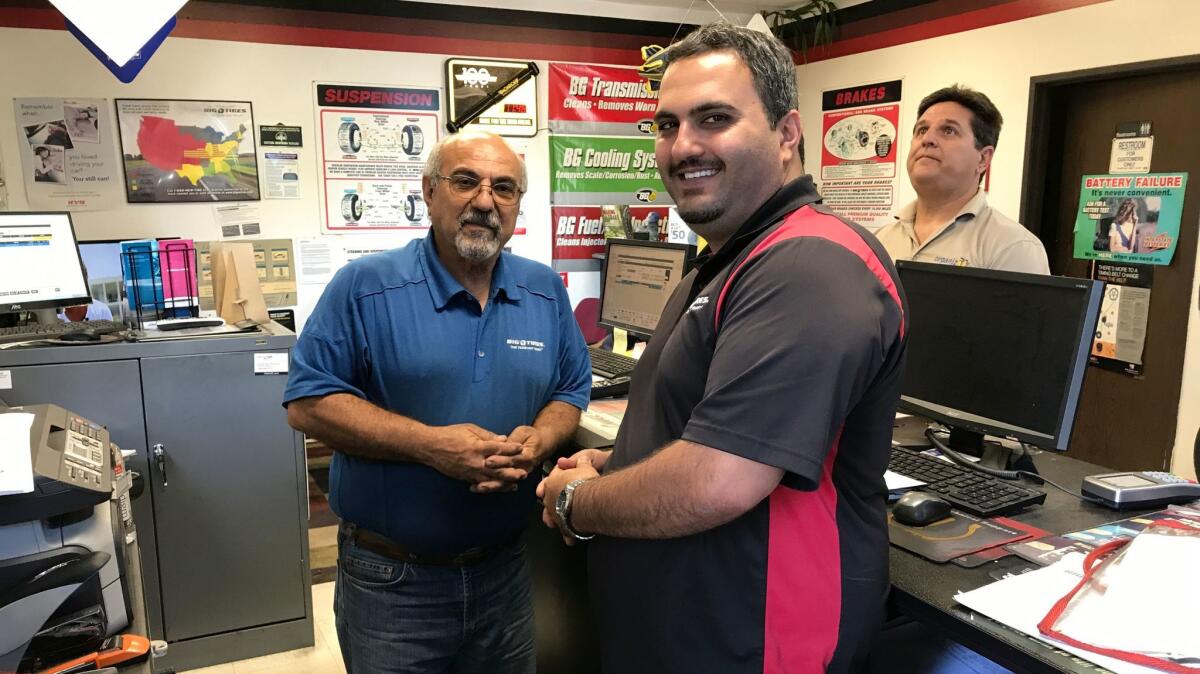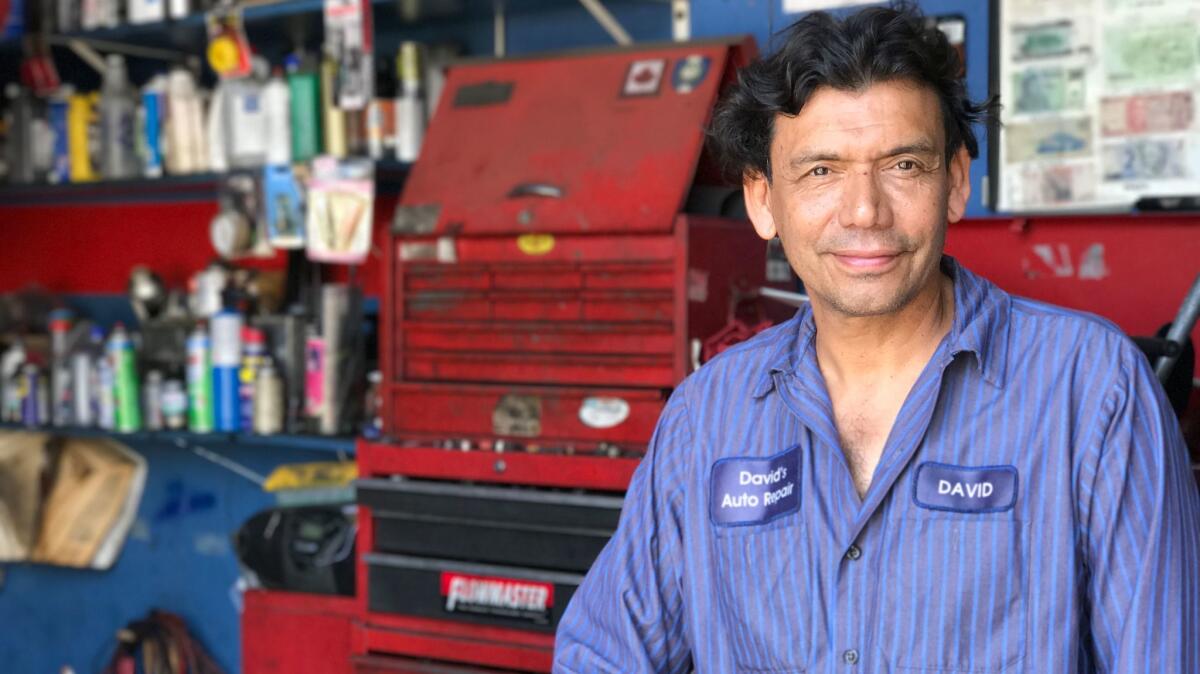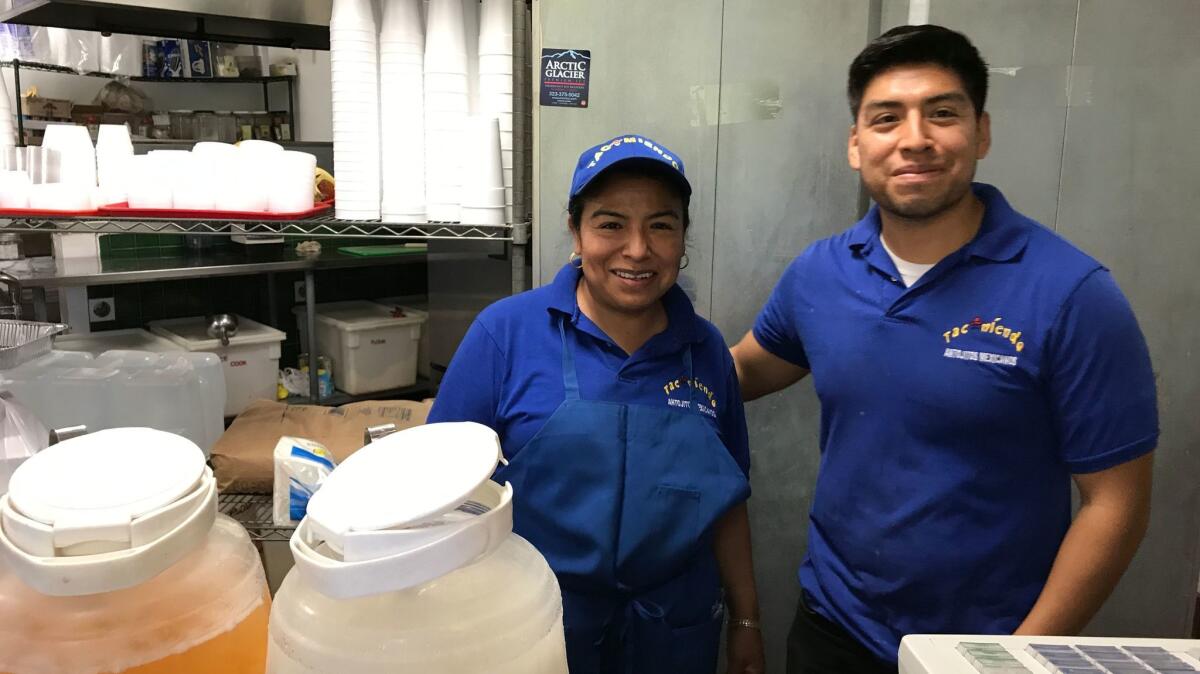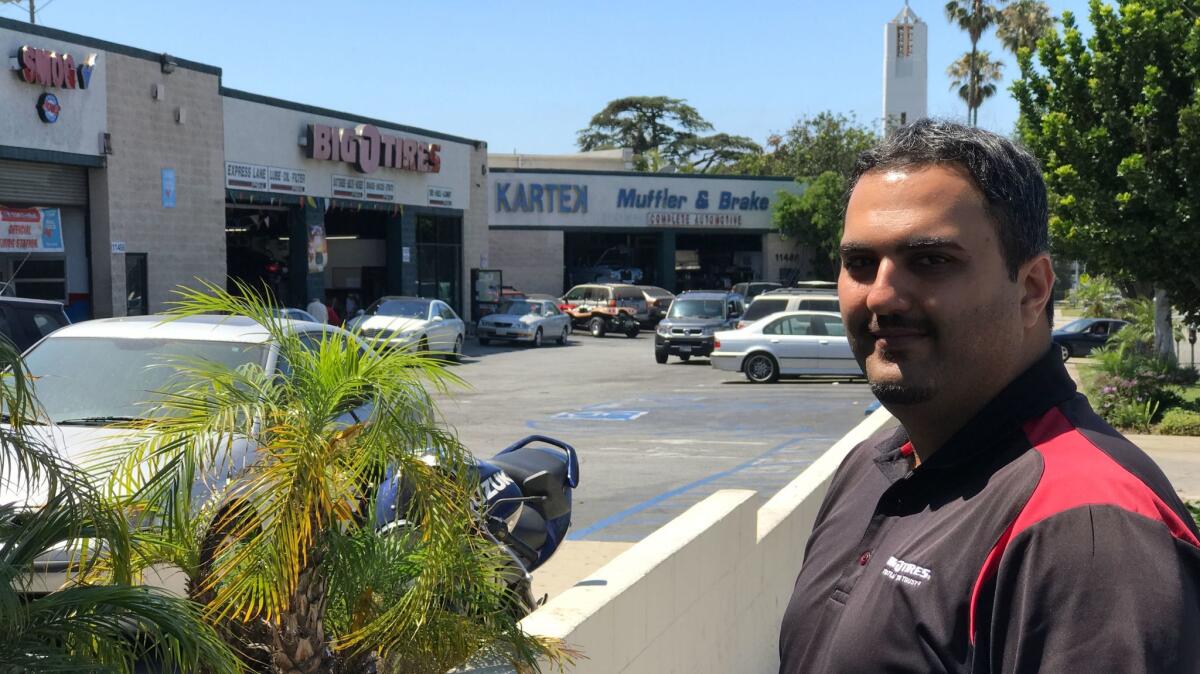California Journal: In West Los Angeles, the American dream collides with the housing shortage

Like so many immigrants, they arrived with virtually nothing.
Ali Etedali brought his wife and young son, Roz, to Los Angeles from Iran in 1984.
Two years later, 23-year-old David Alvarez made his way to Los Angeles from Guatemala City.
Around the same time, a young couple named Ismael and Yolanda Diego left Oaxaca looking for opportunity north of the Mexico border.
Etedali started out as a cashier in a repair shop. Alvarez worked as a mechanic. Ismael Diego washed dishes in a restaurant. Eventually, they all started small businesses, became citizens and had children they were able to send to college. All three have sons who help with the business.
All three families scraped and saved their way to the American dream. And all three ended up renting commercial space in Gateway Center, a low-slung strip mall located at a slightly confusing city crossroads just west of the San Diego Freeway, where Gateway and Pico boulevards converge with Exposition Boulevard, Colby and Butler avenues. The property sits next to the Fantasy Island strip club.
In 2001, Etedali opened a Big O Tires franchise. Alvarez opened David’s Auto Repair in 2002. The Diegos opened their second Tacomiendo restaurant there in 2007.
All have flourished. But their American dream is tenuous. In the next year or so, the businesses will be forced out of the strip mall to make way for a five-story, upscale residential apartment development featuring 129 mostly studio units, parking for 154 cars and a “Zen garden.”
Now, please don’t misunderstand.

This is not a plea to save a handful of immigrant-owned, multigenerational family businesses from capitalism’s wrecking ball. (Although that would be a nice outcome.) The real estate project is moving through the planning process, thanks to an arrangement with the city in which the developers received a publicly owned right of way without which the project would not be feasible.
This is, rather, a requiem for a certain kind of old-fashioned middle-class neighborhood, and a way of life that can no longer survive the pressure of rising property values and the city’s well-documented housing shortage.
And, OK, maybe it’s also a little bit of a complaint about how Los Angeles pretty much sells its soul to developers who squeeze every drop of money out of property parcels, hemming us in with tall buildings, and making our commutes more hellish.
But hey, you already knew that.
::
When the “11460 Gateway” project came before the West Los Angeles Neighborhood Council last year, objections were raised. Neighbors were concerned about the size of the proposal, the height, traffic, parking, and of course were worried that a five-story building would loom over the small, single-story homes on the project’s south side.
Developers agreed to scale the project back. They dropped the square footage from 100,000 square feet to 88,000, lowered the height of the structure closest to abutting homes and agreed to have one driveway instead of three — but the neighborhood council voted against it. City planners approved it anyway.
“It doesn’t really matter what the neighborhood council says,” said Naomi Kageyama, a lifelong resident who was elected to the council last year. “We voted against the project and it got overridden. It’s like people forget with these developments how we are also giving up the small mom-and-pops, the necessary kind of convenience stores. Coffee shops aren’t everything.”
Kageyama married into a family that owns FK Nursery, one of the oldest Japanese businesses in the Sawtelle neighborhood, yet another Westside neighborhood that has undergone a convulsive shift.
At a Neighborhood Council meeting in January, Kageyama raised concerns about the Gateway businesses that would be displaced by the project. “To uproot everything you’ve built over several generations, it’s not a small thing,” she said. “We need the car service; we need the smog checks.”
“I’m not against change,” she told me. “I’m just sad. I grew up here and this is my home. Destroying the structural integrity of the old neighborhood seems to be the way.”
::
The other day, Roz Etedali and I pulled up chairs in front of Big O Tires to chat. We were serenaded by the universal soundtrack of tire stores: the piercing buzz of a pneumatic impact gun.
I wanted to hear his story, and asked him to introduce me to some of the other soon-to-be-displaced entrepreneurs.
We walked over to David’s Auto, where Alvarez told me he’s very anxious about where — or even whether — he will be able to set up shop next.
“I was saving all my life to open my shop,” said Alvarez, 54, whose son, a student at Los Angeles City College, works with him. “Unfortunately, my whole life dream is getting to an end. If I can’t afford another place, I will have to close down. I will have to work for someone else.”

At Tacomiendo, where Ismael Diego, son of the restaurant’s founders, was working behind the counter with his mother, it was the beginning of the lunch rush. Diego graduated in 2013 from UC Riverside. Tacomiendo was doing so well that he decided to join his parents in the business. They can’t afford a new place in West Los Angeles, he said, so they recently opened another location in Montebello.
“We thought the Expo line would be a great booster,” he said, “but when that came through, the property owners probably realized it would be good to have apartments here.”
Etedali, for his part, graduated from UCLA and was planning to attend law school until he started working with his father at their tire shop. Lots of his customers, he said, live walking distance from the store. Many are loyal, but he doubts they would follow him to La Mirada, where he and his father recently opened a second branch.
“I have built a lot of good relationships,” he said. “I have clients where I have three generations of their family here — the grandfather, the son and his daughter and her husband.”
He has not been able to find a suitable Westside space for a Big O. Most are too small, or landlords won’t give a long-term lease, because maybe it will be more profitable to build expensive studio apartments.
“It’s understandable,” Etedali said. “Instead of having one automotive shop paying $10,000 a month, you can build a mixed-use building and make like, $150,000 a month, right? I get it. But we are part of the community, and I just don’t feel like there is anybody out there representing the middle-class right now.”
You probably already knew that, too.

Twitter: @AbcarianLAT
ALSO
Would you want your son taking Bill Cosby’s advice on how to treat women?
The case of the leaning pine tree: A natural history mystery unfolds on the Central Coast
More to Read
Sign up for Essential California
The most important California stories and recommendations in your inbox every morning.
You may occasionally receive promotional content from the Los Angeles Times.











